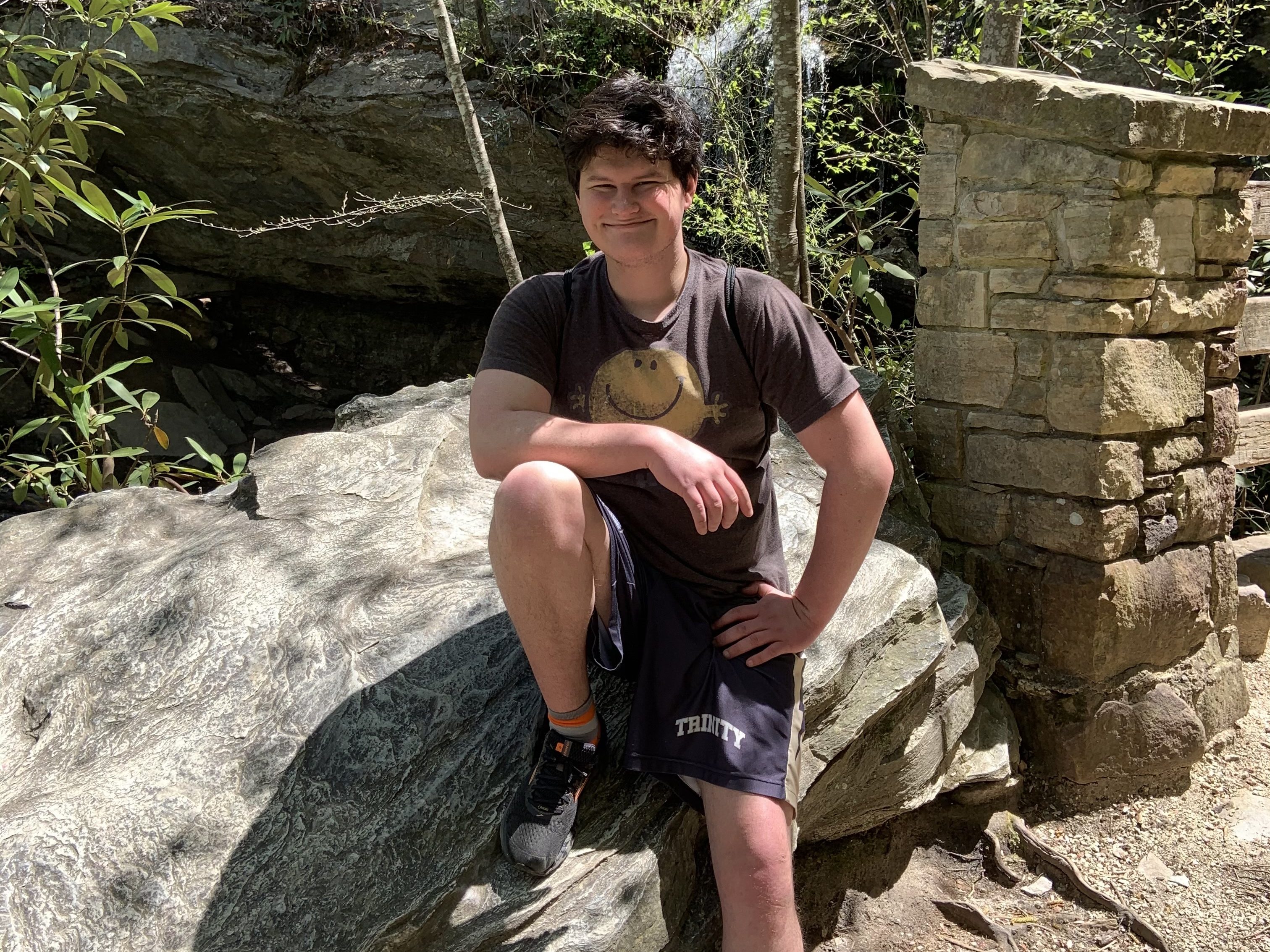In this series, Elon College, the College of Arts and Sciences is shining the spotlight on distinguished members of the Class of 2021 from a wide array of disciplines.
A double major in computer science and applied mathematics, Tim Redgrave’s engagement with and performance in those subjects led faculty from each of those programs to recognize him as an outstanding member of the Class of 2021.
Redgrave is a member of Phi Kappa Phi, Pi Mu Epsilon and Phi Eta Sigma honor societies. He was also awarded the J. Albert Carpenter Computer Science Scholarship and the Richard Carlisle Haworth Mathematics Scholarship.
Tell us about your undergraduate research.
I participated in two separate undergraduate research projects, one with the mathematics department and one with the computer science department.
For mathematics, I used agent-based modeling to simulate the spread of dengue fever in the presence of Wolbachia bacteria. I chose this project because disease modeling is a subject I find really fascinating. I presented a poster for this research at the 15th Annual UNC Greensboro Regional Mathematics and Statistics Conference.
For computer science, I used machine learning to create a model that could take an image of someone wearing a mask and construct what they look like underneath the mask. I chose this project because I wanted to work with computer vision and deep learning, and the idea of being able to see each other’s faces during the pandemic seemed really comforting. I presented my findings from this research at SURF this year.
What is your proudest accomplishment at Elon?
In my computer vision class, I created a convolution neural network that was able to recognize American sign language in live video. I found this project very rewarding to work on, especially when I was able to see it in action.
Were there mentors or faculty who enriched your Elon experience, furthered your goals or helped you grow?
I’ve been lucky to have multiple different mentors and close relationships with professors while here at Elon — including both of my research mentors, Professor of Mathematics Crista Arangala and Assistant Professor of Computer Science Scott Spurlock — and with my academic advisor Professor of Mathematics Todd Lee. All of these relationships have helped me grow both personally and professionally, and the fact that I had so many great professors I could talk with allowed me to get different perspectives on things such as my research and how to achieve my academic goals. One thing that all three of these professors really helped me with was my choice to pursue a Ph.D. They supported me through the entire process and really helped me develop the strongest application I could.
What are your future plans?
After graduation from Elon, I plan on pursuing a Ph.D. in computer science at the University of Notre Dame, where I have been awarded the Arthur J. Schmitt Leadership Fellowship.
What advice would you give future Elon students?
The biggest piece of advice I would give is to really get to know your professors and the faculty around you. The professors here at Elon really care about your success and will be an invaluable resource during your time here, no matter what path you end up pursuing.
What’s your favorite Elon tradition and why?
I really enjoy the tradition of handing out an acorn at commencement and a sapling at graduation. It highlights just how much you really grow while at Elon, and how there is still so much more growing to do. This is just the beginning of a great journey and Elon does an exceptional job preparing you for it.



